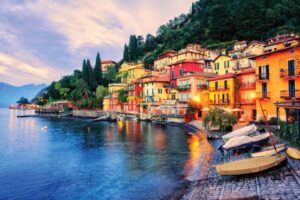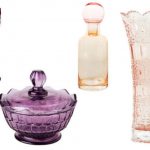The Luxurious but Eco-Friendly Likuliku Lagoon Resort
Best known for having the only overwater bungalows in Fiji, the excellence of Likuliku Lagoon Resort goes well beyond their luxury accommodations and five-star service. Awarded with numerous accolades for their superlative hospitality, what makes this tranquil, adults-only oasis most unique is their vested interest in conservation. Through their various programs and ecological initiatives, Likuliku blazes the trail for sustainable tourism while providing a more pure and authentic experience for travelers.
As a Fijian owned resort, Likuliku’s commitment to eco-tourism derives from the tabu. Most often used in association with marine life, this is a local term that’s used to describe the responsibility of traditional owners and the community to protect their natural environment.
In an observation of this trust that extends to the land, Likuliku Lagoon Resort was mindfully designed to go around a mangrove preservation site so as to not disrupt this ecosystem. The buildings were constructed using locally sourced materials like bamboo, pandanus, and soga thatch. Not only does this serve to protect the environment, but it creates an ambiance that plays host to a more authentic guest experience.
This experience is accented by Likuliku’s farm-to-table culinary prowess, which includes the most healthy, organic dining I’ve seen at any resort the world over. That’s why I like to recommend this resort to travelers who have allergies or sensitivities to processed foods. The chefs are accommodating and flexible, which is why it’s also great for those who follow the guidelines of Paleo and AIP diets.
The secret to this fresh and fantastic dining is the use of locally sourced ingredients, some of which are grown in the resort’s very own garden. Behind the restaurant, the staff at Likuliku cultivates various herbs like mint, basil, and dill. These are utilized by chefs to create flavorful salads and entrees that are often accompanied by shots of fresh pressed natural tonics.
These herbs also decorate eggs, which are cooked to perfection and served in various styles along with the breakfast. Guests also have access to a powerful juicer that’s surrounded by a generous spread of raw fruits and vegetables. Yet, the star of Likuliku’s breakfast is raw honey, which the resort collects from beehives by the garden.
The bees benefit the island’s ecosystem by encouraging pollination. Meanwhile, by utilizing fresh ingredients that are grown in the garden along with additional ingredients sourced from local producers, Likuliku actively supports the surrounding community while minimizing the resort’s carbon footprint.
So committed is Likuliku to upholding the tabu ethos that they created a position to designate an individual on staff to be in charge of conservation initiatives. That’s where Group Environmental Manager Sia Rasalato comes in, a graduate student whose background includes various ecological projects, workshops, and internships across the South Pacific.
“That is your common hibiscus,” explains Sia, as he leads me on along a trail that zigzags through the property, “common uses are for decoration, but also treatment for medicinal use.” Sia is keen on educating guests about the island’s flora and fauna during the nature walks he escorts almost daily. From the garden, Sia escorts me to the nursery, where one of Likuliku’s most ambitious ecological projects is unfolding.
This is the dry reforestation project. This natural habitat once thrived in the Mamanuca Islands, a region of Fiji that gets less rain. In the last few centuries, they’ve suffered substantially as a result of bush fires and the introduction of foreign plant and animal species.
Likuliku’s dry reforestation project aims to restore this—one of Fiji’s most vulnerable ecosystem—by nurturing and planting its endemic trees. Launched in January of 2016, Likuliku’s dry reforestation project is a prototype. It’s the first of its kind to be funded by a resort.
Sia escorts me to the nursery, a 10×10 meter plot that is located behind the resort. At the time of my visit, there were twelve different species of trees being grown. He describes how the staff at Likuliku collects seeds that drop from mature trees, which are then added to the resort’s seed bank. After they’ve germinated, they are taken to the nursery.
Once the seedlings are large enough, Sia bags them up and takes them to be replanted in the wild. It’s a process that takes approximately 18-24 months, but over time, there is potential for the dry forest to be restored.
“This is our iguana hotspot,” Sia says while we continue along one of the resort paths, “if you take a walk at night with a torch [flashlight] and look up, you will see Crested Iguanas sleeping on these tree branches.” He explains how the dry reforestation program has been crucial to another one of the resort’s conservation projects, which is to save the Crested Iguana from extinction.
Sia cites Likuliku’s owners and staff as the driving force behind these ecological initiatives, which lay the path for sustainable tourism. The people who work at Likuliku are also influential in maintaining a natural setting while incorporating what’s grown in the resort’s garden into fresh and delicious meal options. While guests staying at Likuliku Lagoon Resort enjoy superior service and dining, they can feel good about investing in a vacation that values and funds environmental conservation.
You may be interested

Netflix adds 'TikTok generation' thriller fans say is 'two whole hours of being on edge'
admin - Jan 20, 2025[ad_1] A film that was highly acclaimed upon its release in 2023 is now available to stream on Netflix. [ad_2]…

Apple says it’s following the law by removing TikTok from the App Store
admin - Jan 19, 2025[ad_1] Apple is obligated to follow the laws in the jurisdictions where it operates. Pursuant to the Protecting Americans from…

Brits hoard £23 Billion of unworn clothes – but decluttering could be the answer
admin - Jan 19, 2025[ad_1] Could your closet be a goldmine? A recent survey uncovers the staggering value of unworn clothes [ad_2] Source link
Leave a Comment
You must be logged in to post a comment.























